 "Imagine an Open Society: A society where there are no monopolies of knowledge. A society where all people share goals, share work, and share results. A society where all people have a part in determining what the future will be." |
|
Home / Featured Themes / Information Society
|

At this point in history, a point where you and I are both situated, there are an estimated 1.2 billion people, roughly one-sixth of the world's population, who lack access to safe water and live under conditions of extreme poverty. Also at this point in history, there are many voices hailing the arrival of an “Information Society,” a society driven by the rapid development of Information and Communications Technologies (ICTs). Information can be shared and spread at close to the speed of light, potentially erasing boundaries and changing all aspects of human life from education to business to health. In December, world leaders will convene at the World Summit on the Information Society (WSIS) to discuss the issues that arise from these developments. |
|
|||||||||
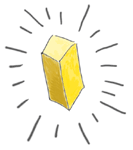  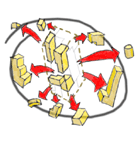 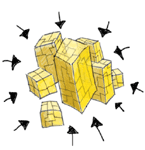 |
||||||||||
|
ICTs have enabled a new way of working entitled “Open Source.” Open Source projects – originating in software development but now spreading to the sciences, arts, and beyond – are uniquely collaborative. Knowledge that would normally be deemed proprietary is made available and transparent so that common goals can be advanced. Work can be distributed to many, and then many share in the results. |
||||||||||
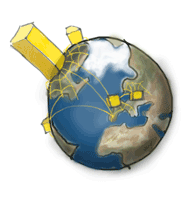 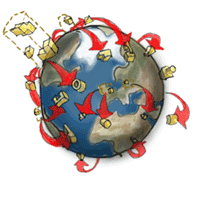 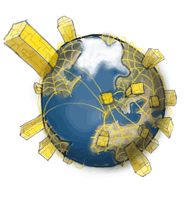
|
||||||||||
|
Yet what significance does Open Source hold for the one-sixth of the world’s population that lacks access to potable water? Can a concept rooted in ICTs be of any relevance to those who don’t have these tools at their disposal? These acute disparities that divide the globe need to be bridged. This need has been recognized by world leaders in the Millennium Development Goals (MDGs), created at the Millennium Summit in 2000. The Goals set targets to reduce poverty, increase access to education, and promote sustainable development by 2020, as well as serving as the guiding strategy for all the work of the United Nations and its agencies. How could progress be made on these goals if the core principles of Open Source – share the resources, share the work, share the goals – were applied? Open Source projects to develop innovative cholera treatments and produce low-cost, education textbooks have already begun. Can collaborative work between nations increase access to potable water and primary education for all citizens? What if knowledge was disseminated to all corners of the globe to empower people? |
||||||||||
 MILLENNIUM
Development
Goals
MILLENNIUM
Development
GoalsThe Millennium Development Goals were adopted by the member states of the United Nations in 2000, as a framework to encourage and measure development progress. The eight goals are:
Learn more about the Goals by visiting: |
||||||||||







